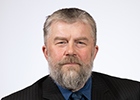Draft law (642 SE) on the withdrawal from the convention prohibiting the use, stockpiling, production and transfer of anti-personnel mines and requiring their destruction – second reading
Session: 15th Riigikogu, 5th session, plenary session
Date: 2025-06-04 17:06
Participating Politicians:
Total Speeches: 34
Membership: 15
Agenda Duration: 58m
AI Summaries: 34/34 Speeches (100.0%)
Analysis: Structured Analysis
Politicians Speaking Time
Politicians
Analysis
Summary
This agenda item concerned the departure of draft law 642, initiated by the Government of the Republic, from the Ottawa Convention, which prohibits the use, stockpiling, production, and transfer of anti-personnel mines and requires their destruction. The purpose of the draft law is to increase Estonia's security sensitivity in response to Russia's full-scale aggression in Ukraine and to provide the Defence Forces with additional opportunities and freedom to choose suitable weapon systems in a characteristic dangerous situation. The practical context included Latvia, Lithuania, Poland, and Finland taking similar steps, as well as the Baltic states’ joint public awareness campaign. In the second reading, the National Defence Committee unanimously approved the text of the draft law and its explanatory memorandum and designated a proposal to bring it to the agenda and final vote of the Riigikogu (Parliament) as a whole.
Decisions Made 2
The parliamentary national defense committee unanimously decided that when the first reading of the bill concludes, it should be put on the agenda of the full parliament on June 4th and a final vote should be held during the second reading.
The Riigikogu passed bill 642 on withdrawing from the Ottawa Convention; the results of the final vote were: 81 in favor, 1 against, 0 abstentions.
Most Active Speaker
The most active speaker was Kalle Grünthal (Estonia 200 faction). He spoke more concisely both earlier and later, and his role in the discussions was to lead the focus and provide parliamentary lobbying; his political affiliation falls under the “other” category (a centrist/eclectic umbrella party).
Aseesimees Toomas Kivimägi
AI Summary
The Riigikogu is discussing Bill 642 on its second reading, which plans to withdraw from the convention and establish a prohibition on the use, stockpiling, production, and transfer of anti-personnel mines, as well as their destruction.

Kalev Stoicescu
Profiling Fraktsiooni mittekuuluvad Riigikogu liikmedAI Summary
The draft bill submitted to the Riigikogu, which the National Defence Committee unanimously approved for its second reading, proposes Estonia’s withdrawal from the Ottawa Convention. This move comes against the backdrop of Russia’s aggression in Ukraine and the deteriorating security situation, and is intended to ensure greater flexibility for the Defence Forces in selecting weapon systems and defending the eastern border. Furthermore, the procedure for withdrawing from the Ottawa Convention is also underway in Latvia, Lithuania, Poland, and Finland, alongside Estonia. The Baltic states intend to jointly notify the states parties and the depositary (or custodian) of their withdrawal from the convention, and Riigikogu members are expected to vote unanimously in favor of the draft bill.
Aseesimees Toomas Kivimägi
AI Summary
Toomas Kivimägi expresses his thanks and announces the commencement of the discussions, noting that the members of the Riigikogu have no questions, and invites Kalle Grünthal to the floor.

Kalle Grünthal
Profiling Fraktsiooni mittekuuluvad Riigikogu liikmedAI Summary
Grünthal emphasizes that we must not withdraw from the Ottawa Treaty, as anti-personnel mines do not provide security and endanger the civilian population. Furthermore, in modern warfare, the use of outdated mines must be avoided, and we must remain within the bounds of the convention.
Aseesimees Toomas Kivimägi
AI Summary
The address expresses deep gratitude and invites Rene Kokk to speak.
AI Summary
Rene Kokk emphasizes that although the use of mines shouldn't be a topic of discussion in an ideal world, national defense necessitates a diverse toolkit, including the option to deploy mines when needed. He hopes the draft legislation on withdrawing from the Ottawa Convention will be adopted collectively, ensuring defenders have the necessary tools for better protection.
Aseesimees Toomas Kivimägi
AI Summary
The address begins with thanks, and Leo Kunnas is invited to take the floor.

Leo Kunnas
Profiling Fraktsiooni mittekuuluvad Riigikogu liikmedAI Summary
Leo Kunnas emphasizes that the denunciation of the Ottawa Convention is necessary because, although the idea of banning factory-made mines was noble, reality has shown that improvised explosive devices are difficult to clear during demining operations and cause civilian casualties. Furthermore, the situation involving the war in Ukraine and the Baltic defense zone demonstrates how crucial it is to utilize all types of mines—anti-personnel mines, anti-tank mines, and unguided mines—to defend territory and halt the adversary.
Aseesimees Toomas Kivimägi
AI Summary
Deputy Chairman Toomas Kivimägi asks for three additional minutes.

Leo Kunnas
Profiling Fraktsiooni mittekuuluvad Riigikogu liikmedAI Summary
Leo Kunnas emphasized that there is a great threat on Estonia's borders and that the military must be given all necessary resources, prioritizing factory-made mines. He called for consensus support for the draft law, arguing that our situation differs from the mine-laying practices seen in many Asian and African countries, and therefore we have no reason to fear widespread mining of the country by guerrillas.
Aseesimees Toomas Kivimägi
AI Summary
The Deputy Chairman thanks everyone and turns to Peeter Tali with a request.

Peeter Tali
Profiling Fraktsiooni mittekuuluvad Riigikogu liikmedAI Summary
Peeter Tali announced that Estonia, alongside the parliaments of Latvia, Lithuania, Finland, and Poland, has decided to withdraw from the Ottawa [Convention] in order to strengthen the country's defense through the construction of the Baltic Defense Line and the use of minefields, and to respond to the changing security situation, including Russian aggression.
Aseesimees Toomas Kivimägi
AI Summary
He confirms that the discussion can continue for three more minutes.

Peeter Tali
Profiling Fraktsiooni mittekuuluvad Riigikogu liikmedAI Summary
Peeter Tali stressed that by ensuring readiness and producing anti-personnel mines, Estonia must provide the Defense Forces with the assurance that authoritarian regimes will never even entertain the thought of a military attack on Estonia.
Aseesimees Toomas Kivimägi
AI Summary
The speech begins with great thanks to you, along with a request to invite Meelis Kiili to speak.

Meelis Kiili
Profiling Fraktsiooni mittekuuluvad Riigikogu liikmedAI Summary
Meelis Kiili stated that withdrawing from the Ottawa Convention would allow Estonia to use brutal weapons for its defense if necessary. He added that this would not obligate us to use them, but instead would give the Defense Forces the capability to repel an invasion and win the war without fighting any battles.
Aseesimees Toomas Kivimägi
AI Summary
Deputy Chairman Toomas Kivimägi thanks the previous speaker, invites Henn Põlluaas to take the floor, and requests an eight-minute extension of time.

Henn Põlluaas
Profiling Fraktsiooni mittekuuluvad Riigikogu liikmedAI Summary
Isamaa politician Henn Põlluaas says that although anti-personnel mines are not pleasant, they are absolutely essential for Estonia’s defense, and the state must adopt the decision to withdraw from the Ottawa Convention today.
Aseesimees Toomas Kivimägi
AI Summary
The speech was a vote of thanks and a request directed at Riina Sikkut.

Riina Sikkut
Profiling Sotsiaaldemokraatliku Erakonna fraktsioonAI Summary
Riina Sikkut announced in the Riigikogu that Estonia is withdrawing from the Ottawa Convention on the prohibition and destruction of anti-personnel mines, in order to grant the Defense Forces legal flexibility and the option to acquire anti-personnel mines if necessary, corresponding to the threat posed by Russian aggression in the Ukrainian conflict. However, Estonia will continue to adhere to international humanitarian law and is making this decision together with Finland, Latvia, Lithuania, and Poland.
Aseesimees Toomas Kivimägi
AI Summary
Deputy Chairman Toomas Kivimägi confirmed that the speech would last three minutes.

Riina Sikkut
Profiling Sotsiaaldemokraatliku Erakonna fraktsioonAI Summary
Riina Sikkut announced that Estonia would symbolically withdraw from the Ottawa Convention along with its neighboring countries, demonstrating a readiness to use all necessary measures against Russian aggression and to defend its territory and freedom. She explained the decision was driven by Russia's behavior in Ukraine, adding that both European Union and NATO allies understand the withdrawal.
Aseesimees Toomas Kivimägi
AI Summary
The Vice-Chairman thanks the audience and requests that Helir-Valdor Seeder likely be the final speaker.

Helir-Valdor Seeder
Profiling Isamaa fraktsioonAI Summary
Helir-Valdor Seeder thanks the esteemed Presiding Officer and states that he had not planned to take the floor.
Aseesimees Toomas Kivimägi
AI Summary
Deputy Chairman Toomas Kivimägi said that he did not have to take the floor.

Helir-Valdor Seeder
Profiling Isamaa fraktsioonAI Summary
To summarize, Helir-Valdor Seeder stresses that while the day-to-day political security situation may change, the strategic threat posed by Russia has persisted for centuries. Therefore, we must learn from the mistakes made in 2004, avoid demilitarization, and instead focus on a long-term national defense plan and modern technologies.
Aseesimees Toomas Kivimägi
AI Summary
The Deputy Speaker offered thanks and announced that two speaking slots were not provided for. He asked Kalle Grünthal to register himself in the second box and invited him to deliver his reply speech.

Kalle Grünthal
Profiling Fraktsiooni mittekuuluvad Riigikogu liikmedAI Summary
Grünthal argues that laying mines after the war could cause civilian casualties and is not the only means of defense, citing Ukraine's experience where firing points are cleared from the surface. He emphasizes that Estonia's territorial depth is limited and that the subsequent removal and registration of mines is unreliable; he himself has found over 50 World War II explosive devices, which have been handed over to the Rescue Board, demonstrating that the deadly threat persists.
Aseesimees Toomas Kivimägi
AI Summary
Deputy Speaker Toomas Kivimägi gave thanks, invited Tõnis Lukas to take the floor, and requested eight minutes of additional time.

Tõnis Lukas
Profiling Isamaa fraktsioonAI Summary
The report stresses that while we aim to avoid casualties and favor disarmament, it is necessary for Estonia to be prepared to use and procure specific weapon systems (including mines), maintain solidarity with Finland, and consider threat assessments directed towards Russia. Consequently, Estonia's decision not to accede to the Ottawa Convention constitutes an understandable strategic choice.
Aseesimees Toomas Kivimägi
AI Summary
The address began with thanks, and Riina Sikkut was then asked to deliver her response address.

Riina Sikkut
Profiling Sotsiaaldemokraatliku Erakonna fraktsioonAI Summary
Riina Sikkut thanked her colleagues for their speeches, confirmed that Estonia and its neighboring countries are taking a symbolic step and are ready to defend themselves by any means necessary, and acknowledged that the threat from Russia persists, but the nuance of the threat assessment has changed over the years, and this was not evident in Helir-Valdor Seeder's speech.
Aseesimees Toomas Kivimägi
AI Summary
Toomas Kivimägi concluded the negotiations, did not submit any amendments, and called upon the members of the Riigikogu to vote in favor of the final reading of Bill 642 for the adoption of the Act on Withdrawal from the Convention.
Aseesimees Toomas Kivimägi
AI Summary
The Riigikogu adopted Bill 642 as an Act: 81 members voted in favor, 1 against, and 0 abstained.
